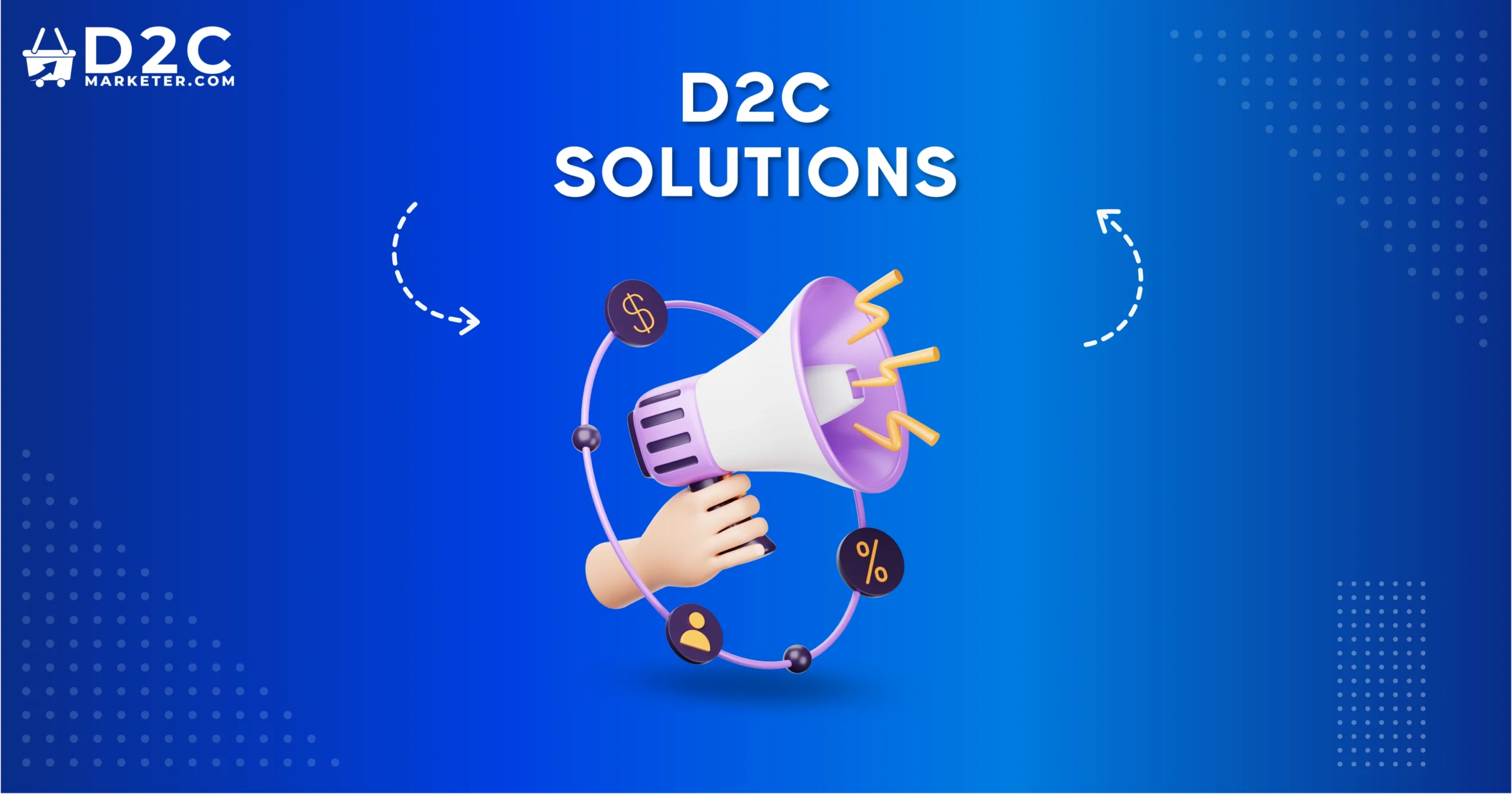How to Choose D2C Solutions for Scaling Your Business
As your direct-to-consumer (D2C) brand begins to grow, the need for scalable solutions becomes more urgent. You’ll quickly realize that relying on basic tools won’t be enough to keep up with your expanding customer base and increasing demands.
Whether you’re just starting out or already established, finding affordable D2C solutions is key to managing growth without losing sight of what makes your brand unique. In this blog, we’ll dive into the best D2C solutions you need to scale effectively, focusing on everything from marketing strategies to logistics and tech tools.
Whether you’re working with a D2C marketing agency or fine-tuning your direct-to-consumer marketing strategy, we’ll help you make the smart choices that will set your brand up for success.
Let’s explore how to streamline your operations and reach your next milestone.
Table of Contents
Marketing Solutions for Scaling D2C Brands
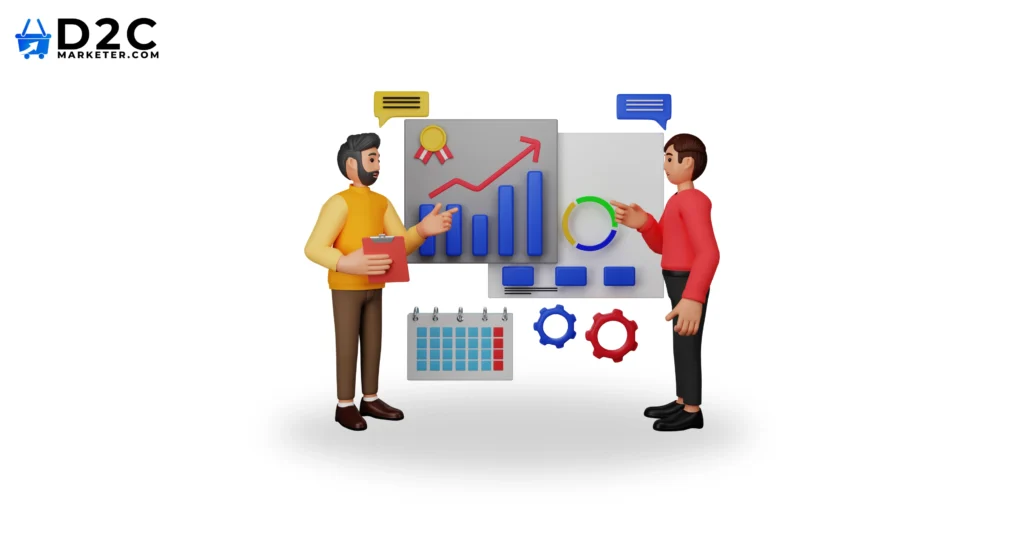
When you’re scaling your D2C brand, one of the biggest challenges is figuring out which marketing platforms and tools will help you reach more customers, without spreading yourself too thin. With so many options out there, it can be tough to know where to focus your energy. Let’s break it down to make sure you’re on the right track.
Choosing the Right Marketing Platforms
To start, it’s all about meeting your customers where they are. Google Ads and Meta Ads (Facebook and Instagram) are two of the most popular platforms for D2C brands, but each serves a different purpose.
- Google Ads is perfect for reaching people who are actively searching for products like yours. These are customers who already have a need or interest, so your ads appear just when they’re ready to make a purchase. It’s a great way to drive immediate traffic and sales.
- Meta Ads, on the other hand, is all about building brand awareness and connecting with people on a more personal level. Whether it’s through Facebook or Instagram, these platforms are ideal for showcasing your brand’s story, building relationships, and engaging with potential customers who may not be actively shopping yet but could be interested in what you offer.
When to Bring in an Agency
If managing all these platforms feels overwhelming, or if you’re not seeing the results you want, it might be time to bring in some help. A good D2C marketing agency, like D2C Marketer, can help take the guesswork out of your strategy. They’ll dive into your brand’s goals and tailor a D2C brand strategy that works for you, whether that’s scaling your paid ads, refining your content strategy, or optimizing your customer journey.
Working with an agency can help you move faster and smarter, saving you time and effort. Additionally, they bring a fresh perspective and expertise in D2C marketing strategies, helping you stay ahead of trends and make data-driven decisions that drive results.
Best Tools for Managing Multi-Channel Campaigns
Once you have your platforms and partners in place, the next step is making sure you’re managing everything smoothly. Scaling your marketing efforts means managing multiple campaigns at once, which can get messy if you don’t have the right tools.
Tools like HubSpot and Klaviyo are lifesavers when it comes to running email, SMS, and social media campaigns from one dashboard. These tools let you automate tasks, personalize messages, and track your results across different channels, all from one place. That’s crucial as your brand grows and you need to stay organized.
And don’t forget about tools like Google Analytics and Facebook Ads Manager. These platforms give you the data you need to see what’s working, what’s not, and where you should invest next. It’s all about making informed decisions to keep improving your campaigns.
Top Marketing Platforms for D2C
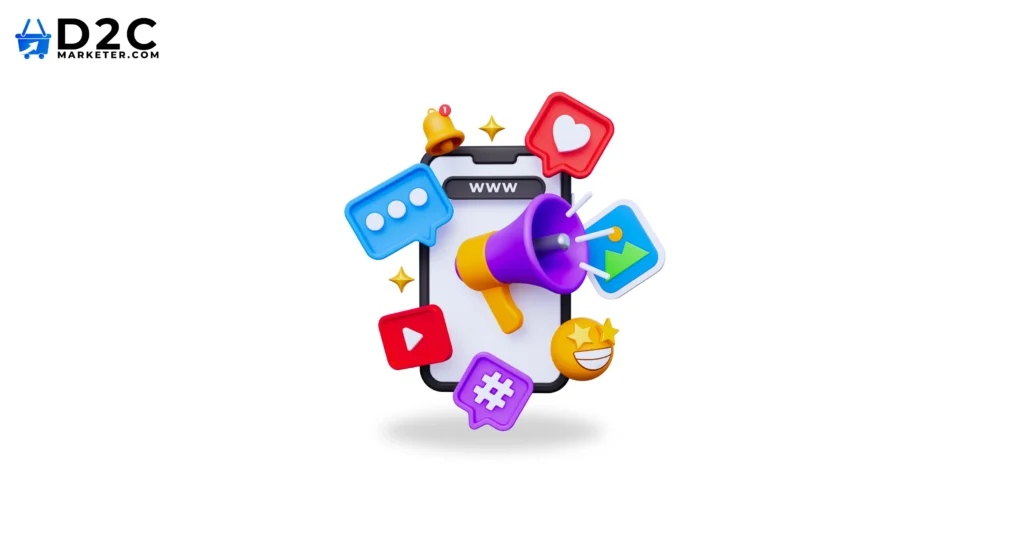
- Google Ads:
- Pros: Wide reach, high intent audience.
- Cons: Can be expensive for competitive keywords.
- Facebook Ads:
- Pros: Advanced targeting, creative flexibility.
- Cons: Declining reach due to iOS privacy updates.
Fulfillment and Inventory Solutions
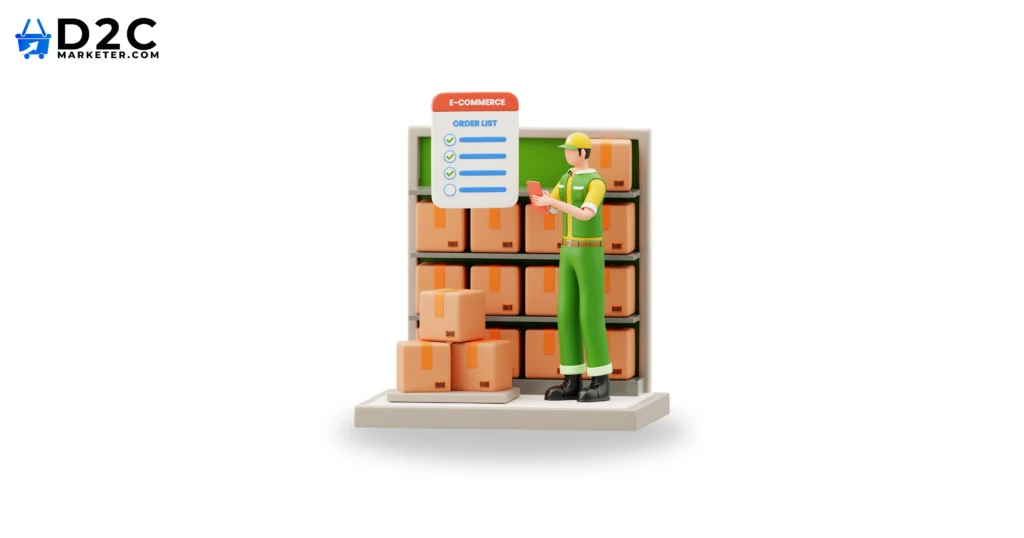
As your D2C brand grows, managing fulfillment and inventory can quickly become a major challenge. If you’re not careful, it can lead to delays, stockouts, or a poor customer experience, none of which you want as you scale. But don’t worry, there are plenty of affordable D2C solutions that can help streamline this process, ensuring your logistics run smoothly and your inventory stays in check.
inventory stays in check.
Choosing the Right Logistics and Inventory Management Systems
The first step in scaling your fulfillment process is selecting the right logistics and inventory management systems that can grow with your brand. As your sales increase, you’ll need tools that can help you keep track of stock, manage orders, and keep everything organized—without becoming a logistical nightmare.
Look for inventory management software that integrates seamlessly with your existing eCommerce platform, so you can track your inventory in real time, avoid stockouts, and prevent overstocking. Some of the best D2C solutions for inventory management include tools like TradeGecko (now QuickBooks Commerce) or NetSuite. These platforms not only help manage inventory but also give you a clear view of your sales trends, so you can forecast demand and avoid those frustrating last-minute rushes to replenish stock.
Make sure the system you choose can also scale as your business grows. You want a solution that can handle increased order volume, automate stock updates, and offer detailed reporting, all of which are essential as your brand expands.
Fulfillment Providers and Order Management Software
Once you’ve got the inventory side covered, it’s time to look at your fulfillment strategy. Selecting the right fulfillment provider can make or break your customer experience. As a D2C brand, you want to ensure your customers receive their orders quickly, accurately, and without any hassle.
Fulfillment providers like ShipBob, Fulfillment by Amazon (FBA), or ShipHero offer end-to-end logistics solutions that integrate with your eCommerce platform, so orders are automatically fulfilled as soon as they’re placed. These providers handle warehousing, picking, packing, and shipping, freeing up your time to focus on growing your brand. They also have systems in place to scale as your order volume increases, so you’re not scrambling to meet demand during peak seasons.
To complement your fulfillment provider, you’ll also need solid order management software. A good order management system (OMS) can help you manage orders from multiple sales channels, track the status of shipments, and provide updates to customers in real time.
| Provider | Key Features | Pros | Cons |
| ShipBob | Real-time tracking | Fast shipping times | Higher costs for international |
| Amazon FBA | Global network | Access to Amazon Prime users | Storage fees can add up |
Customer Service and CRM Tools
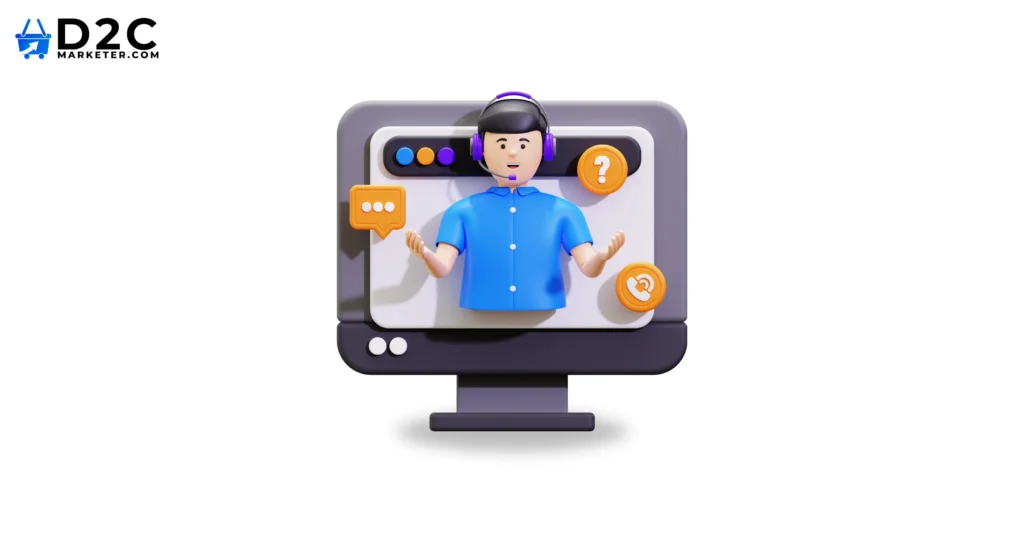
As your D2C brand grows, keeping your customers happy becomes even more important. Sure, scaling and increasing sales is exciting, but it also means more customers, more questions, and more opportunities to drop the ball if you’re not careful. Great customer service can be the difference between turning a first-time buyer into a loyal customer or losing them to a competitor. So, how do you maintain that personal touch as your business expands? The answer: by using the right tools to manage and nurture those customer relationships.
Why Customer Service Matters Even More as You Scale
When you’re running a D2C brand, you have the chance to connect with your customers directly, and this is where a standout customer service experience can really shine. Sure, it’s important to have a great product, but what keeps people coming back is the experience they have when they need help or have a question. As you scale, it’s easy to lose that personal connection, but you don’t have to. If you invest in the right systems early on, you can scale your customer service efforts without losing the high-quality experience your customers expect.
Good customer service isn’t just about solving problems, it’s about building trust. When customers feel heard, valued, and supported, they’re much more likely to stay loyal to your brand, spread the word to others, and continue shopping with you. That’s where having affordable D2C solutions for customer service and relationship management really come into play.
CRM Tools to Strengthen Your Customer Relationships
One of the best ways to keep those relationships strong is by using a Customer Relationship Management (CRM) system. A CRM is like a “memory bank” for your customers, keeping track of every interaction, purchase, and inquiry so you can deliver a personalized experience every time. This is especially important as your customer base grows, because it helps you stay organized and responsive.
Two standout CRM tools that many growing D2C brands rely on are HubSpot and Salesforce. Here’s why they’re worth considering:
- HubSpot: If you’re looking for something user-friendly and affordable, HubSpot is a great option. It’s a one-stop shop for managing customer relationships, automating marketing tasks, and tracking customer interactions. You can easily see where each customer is in their journey with your brand, making it easier to personalize your communication and stay on top of follow-ups. Additionally, HubSpot integrates with many other tools you’re probably already using, so it’s easy to get started without a steep learning curve.
- Salesforce: For larger brands that need something a bit more robust, Salesforce is a powerhouse. It’s a bit more complex but offers in-depth tools for customer tracking, automating tasks, and analyzing customer data to improve your direct-to-consumer marketing strategy. Salesforce helps you track every touchpoint, from initial interest to post-purchase support, so you can continuously improve your D2C marketing strategies and customer experience.
Both tools give you the ability to manage customer interactions from all of your D2C marketing channels, whether that’s through email, live chat, or social media.
Why CRM Tools Are Key to Retention and Growth
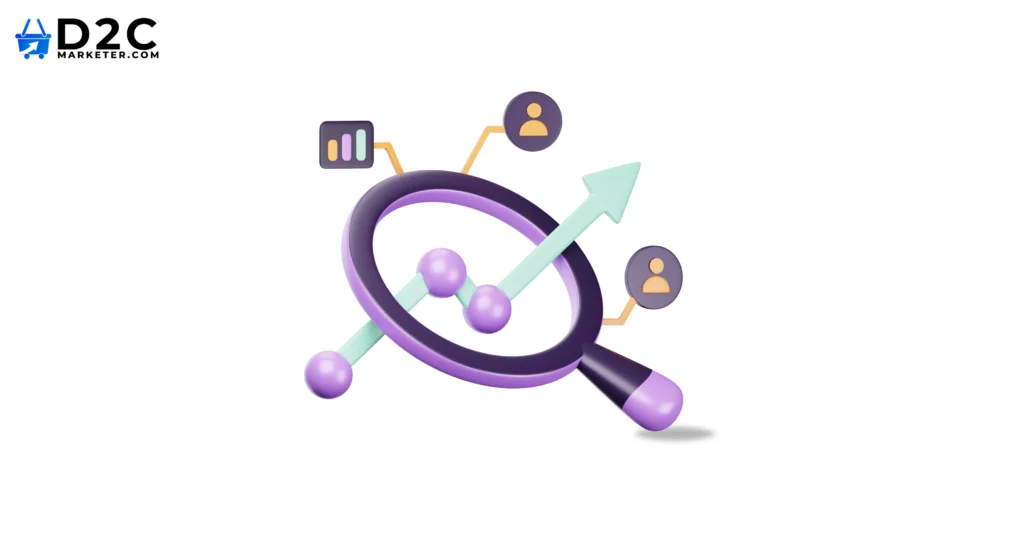
The ultimate goal is not just attracting customers but keeping them around. As your D2C business scales, working with a D2C ecommerce agency can help you refine your D2C brand strategy to make sure you’re using your CRM system effectively. An agency can guide you on how to best utilize these tools to foster customer loyalty and improve retention over time.
The right CRM isn’t just about tracking data, it’s about using that data to create better experiences for your customers. When you personalize your communication, offer timely support, and anticipate their needs, you turn first-time buyers into repeat customers who are excited to engage with your brand. This leads to higher lifetime value, stronger brand loyalty, and more word-of-mouth referrals, giving your brand the momentum it needs to continue growing.
| CRM Tool | Best For | Pros | Cons |
| HubSpot | Small to mid-sized brands | Easy integration, automation | Limited advanced features in basic plans |
| Salesforce | Large enterprises | Highly customizable | Expensive for small businesses |
Technology and Automation Solutions
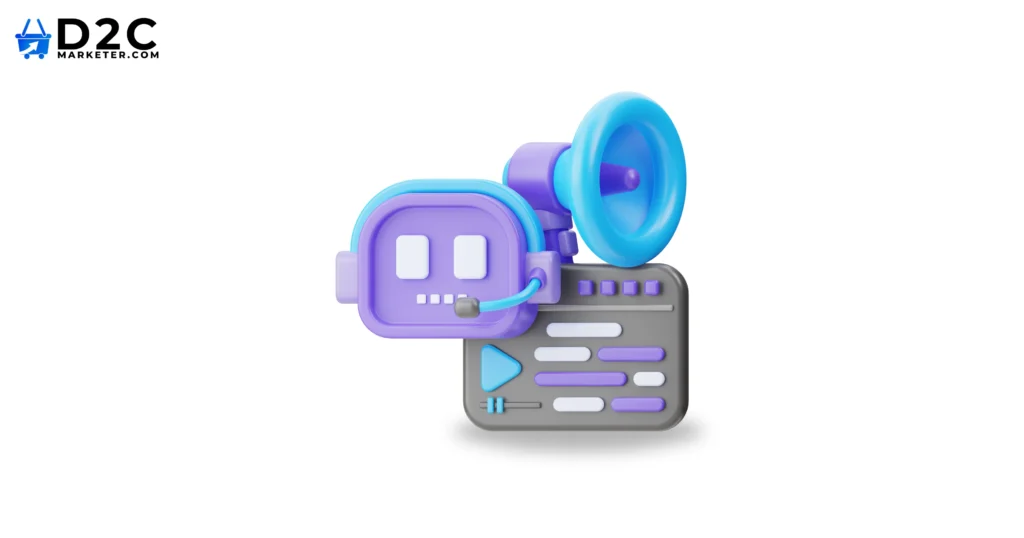
As your D2C brand grows, staying on top of everything, marketing, sales, customer service, fulfillment, can feel like a juggling act. It’s easy to get overwhelmed by all the moving parts. The good news? You don’t have to do it all manually. With the right automation tools and technology solutions, you can streamline operations, save time, and ensure everything runs smoothly.
How Automation Tools Streamline Operations
When you’re running a D2C business, there are a lot of tasks that need to be done every day. Things like processing orders, sending follow-up emails, updating inventory, and syncing data across systems, it can all add up quickly. That’s where automation tools like Zapier and HubSpot come in.
- Zapier acts like a “connector” between your different software tools. It allows you to automate repetitive tasks by setting up simple workflows, called “Zaps.” For example, every time a customer makes a purchase, Zapier can automatically add them to your email list, create an invoice in your accounting system, and update your inventory in real time—without you lifting a finger. This saves you tons of time and ensures no task slips through the cracks.
- HubSpot, on the other hand, is a powerhouse for marketing automation. As part of a broader CRM tool, HubSpot can automatically send personalized emails to your customers, nurture leads through automated workflows, and track engagement. It can even trigger follow-up emails based on customer actions, like an abandoned cart reminder or a thank-you message after a purchase. This keeps your marketing consistent and personalized without requiring constant manual effort.
By automating these everyday tasks, you can focus more on growing your brand and engaging with customers, knowing that the repetitive stuff is taken care of.
The Role of ERP Systems in Scaling Efficiently
While automation tools help with marketing and customer engagement, Enterprise Resource Planning (ERP) systems are key to managing your operations at scale. As your D2C brand grows, you’ll need a way to keep track of everything from inventory and supply chain to order processing and financials—without getting bogged down by manual work. This is where ERP systems come in.
An ERP system is designed to integrate all of your business processes into one unified system, providing real-time visibility across your entire operation. For example, systems like NetSuite, Odoo, and SAP Business One can help you manage inventory, track sales, and handle accounting all in one place. Instead of juggling multiple systems for different departments, an ERP allows you to make informed decisions quickly because all your data is centralized and easy to access.
The best part? ERPs are scalable, meaning they grow with your brand. As your order volume increases, your ERP system can handle more transactions without you needing to upgrade or manually adjust your processes. This efficiency can dramatically improve your operational workflow, reduce errors, and ensure you’re delivering a seamless experience to your customers.
Pros and Cons of D2C Scaling Solutions
| Solution Type | Pros | Cons |
| Marketing Platforms | Boost brand awareness, scalable | High costs, needs constant optimization |
| Fulfillment Systems | Faster deliveries, improves efficiency | High fees, complicated logistics management |
| CRM Tools | Streamlined communication, boosts loyalty | Expensive for premium versions |
| Automation Tools | Saves time, improves operations | Setup complexity, steep learning curve |
Conclusion
Scaling your D2C brand is an exciting journey, but it’s also a challenge. Finding the best D2C solutions, from marketing and fulfillment to customer service and automation, is key to maintaining a seamless operation as you grow. The right tools can save you time, improve efficiency, and help you deliver an exceptional customer experience. Whether you’re working with a D2C ecommerce agency or building your in-house strategy, investing in the right solutions will give you the foundation to scale without sacrificing quality.
Remember, the goal is not just to grow, but to grow smartly. By leveraging affordable D2C solutions and aligning them with a strong direct-to-consumer marketing strategy, you’ll set your brand up for long-term success.
Looking for the best tools and strategies to scale your D2C brand? Let D2C Marketer help you find the right solutions to take your business to the next level.
Reach out today and let’s start building your success!
FAQs
The best CRM for a D2C business depends on your specific needs. Consider options like HubSpot, Zoho CRM, or Salesforce. Look for features like contact management, sales pipeline management, and marketing automation.
When choosing a fulfillment provider, consider factors like location, cost, shipping speed, and scalability. Look for a provider with a strong track record, good customer service, and the ability to handle your expected volume.
While Facebook Ads can be a powerful tool for scaling a D2C brand, it’s not the only channel. Diversify your marketing efforts to include other platforms like Instagram, Google Ads, email marketing, and influencer partnerships.
Automation tools can save time, reduce errors, and improve efficiency. They can automate tasks like email marketing, social media posting, inventory management, and customer service.
ERP systems can streamline operations, improve inventory management, and provide valuable insights into business performance. They can help D2C brands scale by automating processes, reducing costs, and improving customer satisfaction.

